 OSS in China
OSS in China
 OSS in China
OSS in China

The latest edition of this work has been brought to publication with the generous assistance of Marguerite and Gerry Lenfest.
Naval Institute Press
291 Wood Road
Annapolis, MD 21402
1996 by Maochun Yu
All rights reserved. No part of this book may be reproduced or utilized in any form or by any means, electronic or mechanical, including photocopying and recording, or by any information storage and retrieval system, without permission in writing from the publisher.
First Naval Institute Press paperback edition published 2011.
ISBN 978-1-61251-059-0 (eBook)
The Library of Congress has cataloged the hardcover edition as follows:
Yu, Maochun, 1962
OSS in China : prelude to Cold War / Maochun Yu.
p. cm.
Includes bibliographical references and index.
ISBN 0-300-06698-8
1. United States. Office of Strategic ServicesHistory. 2. World War, 19391945Secret ServiceUnited States. 3. World War, 1939-1945Secret ServiceChina. 4. World War, 19391945China. 5. World War, 1939-1945Military intelligenceUnited States. I. Title.
D810.S7Y82 1996
940.548673dc20
96-22593
 Print editions meet the requirements of ANSI/NISO z39.48-1992 (Permanence of Paper).
Print editions meet the requirements of ANSI/NISO z39.48-1992 (Permanence of Paper).
9 8 7 6 5 4 3 2 1
In a global and totalitarian war, intelligence must be global and totalitarian.
WILLIAM JOSEPH DONOVAN
Contents
In the summer of 1944, General William Donovan, director of the Office of Strategic Services, decided to compile a general history of the agency. He appointed one of his agents, the Harvard historian Conyers Read, to head a history office under the direct supervision of OSS deputy director Otto Doering. But Donovan never anticipated the controversy from all sides that would be associated with the history of OSS in the years to come. The Conyers Read project was dropped near its completion for grim economic reasons before the war ended, at a point when virtually every other war agency of the U.S. government had composed a history.
If writing a general history of OSS was difficult, writing the China story of OSS was almost impossible. In 1944, as part of the Read project, OSS headquarters in Washington appointed the University of Michigan scholar Mischa Titiev to chronicle OSS accomplishments in the China-Burma-India (CBI) theater under General Joseph Stilwell. Stilwell adamantly opposed
Why was all of this shrouded in such mystery and secrecy? The history of OSS in China brought to light several major points of contention. During the Cold War, any examination of U.S. policy toward China during World War II became a smoke-ridden political battleground. The debate over who lost China was partisan and bitter. Pit-bull politicians, notably Senator Joseph McCarthy of Wisconsin, were obsessed with finding villains in order to display their political prowess and fortify their partisan agendas. McCarthyism was the single most important condition corrupting the nature of postwar discourse on U.S. wartime policy toward China. Objective discussion has been rare ever since. Policy reevaluation invited political persecution. Even worse, to counter McCarthys accusations and crusade, many talented historians spent considerable energy reinterpreting the same facts that he used in his attacks, thus reinventing new villains and heroes, all in an intellectual framework that is equally teleological and polemical. In 1969 John Paton Davies reevaluated his own deeds during World War II and admitted that my mistake in 1944 was in saying that the Chinese Communists were democratic.... I confused the popularity of the Communists with democracy.... They had a democratic faade. But even that lukewarm concession could not be delivered in the United States; Davies spoke from Peru, where he was in virtual exile, far away from U.S. party politics.
The OSS story in China has not escaped this skewed intellectual environment because OSS was so closely tied to the issue of communism there. OSS was by turns an enthusiastic advocate for intelligence cooperation with the Chinese Communists and their ultimate enemy. The murder of OSS agent John Birch by the Chinese Communists and the systematic purging by Mao Zedong after 1949 of all those who had any association with OSS, are just two cases to ponder.
An objective history of OSS was also made difficult if not impossible by contentious debate in the late 1940s within the U.S. government over the necessity of establishing a centralized intelligence organization. Proponents wanted to preserve and continue the legacy of OSS, while opponents vehemently supported a departmentalized intelligence system, as had existed in the armed forces during the war. When the rivals were unable to come to terms, the wartime experience of OSS became a victim of polemics and policy arguments. Each side used OSS history to support its own case.
Moreover, federal agencies closed many of the essential archives and personal papers on OSS, often not for national security reasons but to protect individuals from accusations and attacks. By the same token, many archives have been only partially opened to the public and have been excessively sanitized. Even the presidential libraries have not been exempt. The finding guide to the Presidents Safe Files at the Roosevelt Library in Hyde Park states, Materials that might be used to harass, embarrass or injure living persons have been closed. In the case of OSS/China, many essential files remain unavailable.
Fortunately, the 1980s marked a real thaw in this state of secrecy and closure. First, the concerned agencies of the U.S. government opened the operations files of OSS, now known as Record Group 226 at the National Archives in Washington. This has been a windfall for researchers. As the project archivist of the National Archives, Larry McDonald, notes, RG226 draw[s] heavy reference because this vast assortment of files reveals information never before available about one of the great defining moments in modern history.... [It] offer[s] the researcher a kind of precis of that war, providing a wealth of research material on every theater of the war in the form of intelligence files or of records on all aspects of covert operations in combat and behind enemy lines.
Next page


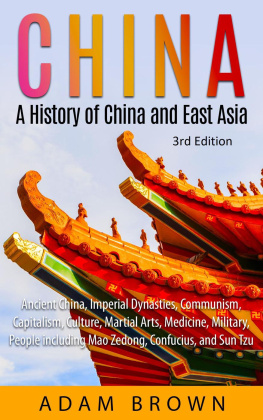

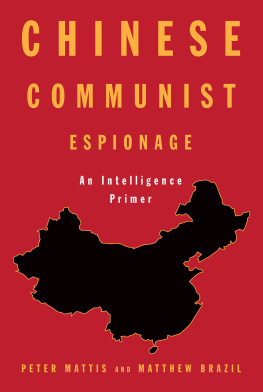

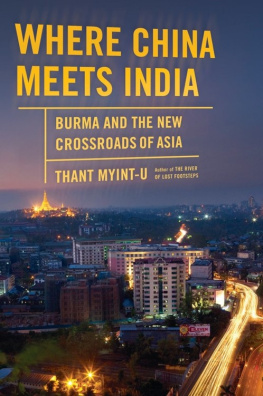
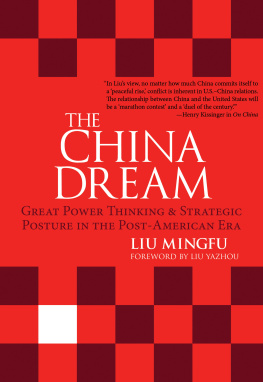

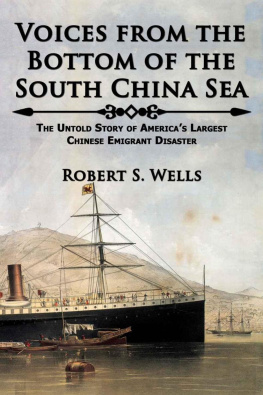
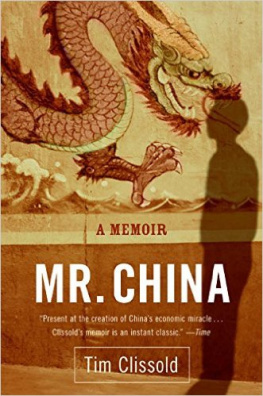

 OSS in China
OSS in China
 Print editions meet the requirements of ANSI/NISO z39.48-1992 (Permanence of Paper).
Print editions meet the requirements of ANSI/NISO z39.48-1992 (Permanence of Paper).